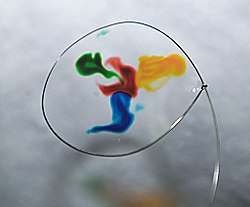 In an effort to deflect and counteract leftist regimes in Latin America during the Cold War, Washington attached great political importance to its propaganda efforts.
In an effort to deflect and counteract leftist regimes in Latin America during the Cold War, Washington attached great political importance to its propaganda efforts.
From Cuba to Chile, the US sought to promote friendly media while cultivating the support of right-wing reporters. Ultimately, such propaganda efforts proved not only economically wasteful but also politically self-defeating as Washington antagonised the Latin left, leaving a bitter residue for years to come.





 The Army's recent announcement that another infant had mysteriously died while living in post housing at Fort Bragg was especially eerie to Pearline Sculley, like a bookend to her own tragic story.
The Army's recent announcement that another infant had mysteriously died while living in post housing at Fort Bragg was especially eerie to Pearline Sculley, like a bookend to her own tragic story.
 In February 2006, with roadside bombs killing more and more American soldiers in Iraq, the Pentagon created an agency to defeat the deadly threat and tasked a retired four-star general to run it.
In February 2006, with roadside bombs killing more and more American soldiers in Iraq, the Pentagon created an agency to defeat the deadly threat and tasked a retired four-star general to run it.
 Instead of keeping watch itself, the Department of Defense today relies on contractors to monitor the work of other contractors, a risk strategy that became cemented during the Iraq War thanks to a politically-connected-and powerful-company with ties to the Bush White House.
Instead of keeping watch itself, the Department of Defense today relies on contractors to monitor the work of other contractors, a risk strategy that became cemented during the Iraq War thanks to a politically-connected-and powerful-company with ties to the Bush White House.
 Push a cart down a supermarket aisle, and you’ll pass a kaleidoscope of color. The use of artificial dyes
Push a cart down a supermarket aisle, and you’ll pass a kaleidoscope of color. The use of artificial dyes 
 Home health agencies, hospitals and consumer groups are complaining that a new rule intended to curb unnecessary Medicare spending will make it harder for senior citizens to get home care services.
Home health agencies, hospitals and consumer groups are complaining that a new rule intended to curb unnecessary Medicare spending will make it harder for senior citizens to get home care services.
































